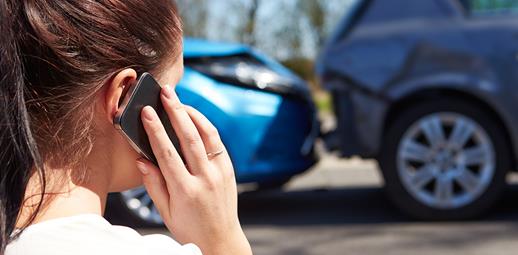
Whether it’s a small bump or a more serious collision, being involved in a car accident is a stressful experience.
Motorists not only need to deal with the aftermath of the incident, but they also need to take steps to ensure they are best placed to make a successful claim on their car insurance for any repairs needed.
There’s no need to panic though; a little bit of preparation can go a long way.
Take your time
If you are involved in an incident, be sure to take a few moments to compose yourself. Losing your temper won’t help the situation, nor will apologising and taking responsibility for the collision.
If you can keep in a relatively calm state, you will be better placed to remember the following steps, which will then help you with any claims you need to make.
Can I have your number?
You will need to swap certain details with the other motorists involved in the incident. That means names, addresses and contact details. If possible try to get the name of their insurer and policy number, which will help speed up your claim, though in truth many of us don’t have that sort of information to hand.
It’s also a good idea to get the details of any passengers involved and any witnesses too.
Be sure to note things like the colour, make, model and registration of the other cars caught up in the incident, as well as things like the time and date of the accident and a description of the weather conditions. These details can all help your insurer when assessing your case.
If the police are called to the scene, then you will also need to make a note of the address of the police station and if possible the case reference number.
It’s an excellent idea to keep a notebook and pen in your car at all times for just this situation. Sure, you could rely on using your mobile phone, but old-fashioned pen and paper works as a useful back-up in case you don’t have your phone with you at the time.
Take pictures
That said, there is a decent chance that you or one of your passengers will have a smartphone, so you can put your handset’s camera to good use. Take plenty of pictures of the scene of the accident, particularly of the damage to any vehicles, but also of the positioning of the vehicles.
Alternatively, you can instead sketch out the position of the various vehicles involved in the collision while the details are fresh in your mind and before they have been moved.
Essentially, you can’t provide an insurer with too much information - it all helps.
Call your insurer
It’s really important that you contact your insurer as soon as possible after the incident.
This applies even if you don’t want to make a claim on your policy; you still need to notify your insurer about the accident.
You might want to write down all of the key details from the incident before making the call, to help you focus and ensure you don’t forget anything important.
Getting your car repaired
The damage to your vehicle can vary significantly, depending on the severity of the accident.
If your vehicle is no longer driveable, and you have comprehensive cover, then your insurer will take the vehicle to one of its approved repairers to assess the damage and begin repairs. Most insurers will provide a replacement vehicle while yours is out of action. But be sure to check your policy, as this isn't always the case.
If your car has only suffered a bump or two, or perhaps a few scratches, then you may opt to take it to a garage of your own choosing. You should remember that in these situations you will need to present an estimate for the costs of the repairs, which cannot start until you get your insurer's approval. Bear in mind that your insurer may opt to send out an engineer to assess the work too, while no replacement vehicle will be supplied.
My car is a write off
It may be that the damage to your car is so extensive that repairs are either not possible or worthwhile.
In these instances our claims department will offer you a settlement amount, though this will be subject to a host of factors including receipt of your current MOT certificate and various deductions such as your policy excess.
How long will my claim take?
There’s no hard and fast answer to this unfortunately; it really does depend on the circumstances of your case.
However, there are steps you can take to ensure the claim moves forward as quickly as possible. These include providing your insurer with all of the important details of the accident from the outset, ensuring you have the money to pay the excess on your claim and being flexible about which garage to use for any repair work.


